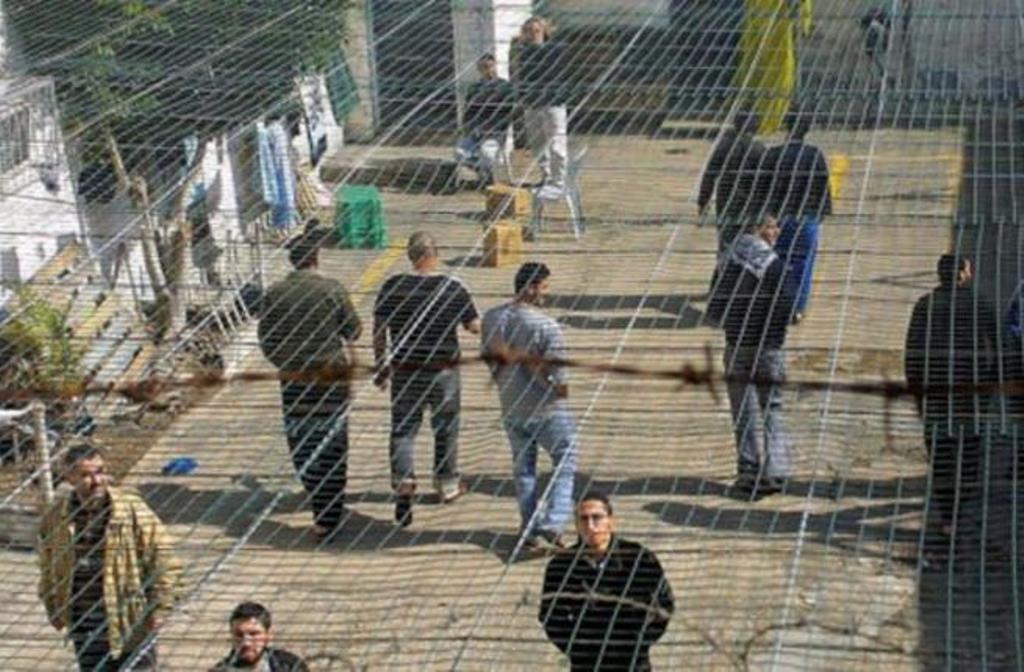Any Arab witnessing the bravery of the Palestinian prisoners inside the occupation’s jails would feel proud, angry and pain. He would be proud because the long detention behind the bars did not break the will of people demanding the restoration of their land, rights and freedom — a number of fundamentals the world claims it does not allow their violation.
It is the will of a prisoner that challenges the executioner no matter how skilled he is at torture. The captive’s strokes on the wall of his cell kill whatever serenity the jailer might be feeling, and sometimes shackles him in his oppression.
I can almost assume that the determination of the prisoners’ fists can achieve what the factions were not capable of doing. Those fists rejuvenate the Palestinian dream, while most factions are dying under the pressure of their narrow calculations or their transformation into chips in major bargains.
The Arab would feel angry because the current status of the nation does not permit keeping up with the prisoners’ determination to light the freedom torch of their occupied land.
Over the past few years, Israel achieved a tremendous historic victory without even going into battle. The enemy’s generals could have just been satisfied with watching through their binoculars the fast descent of the nation towards the abyss. A few of the nation’s downfalls: the Iraqi army’s absence and awakening of Iraqi groups asking for independence; the removal of the Syrian army out the equation and its retreat to pouring its anger on some of its people.
Syria no longer poses a threat to Israel. It has rather become a threat to itself and its other neighbors.
The Arab is in pain because the central Palestinian cause is no longer the core of the Arab and international interests, despite efforts at the recent Arab Summit.
This is the painful truth, but should we continue to bury our heads in the sand?
Other issues, such as terrorism, border infiltration, the Iranian meddling, demographic change, Sunni-Shi’ite struggle and regional countries’ confusion over the Kurds have imposed themselves on the agenda and have even come on top of priorities.
Clearly, the world is busy in developing methods to fight terrorists and lone wolves, as well as sparks coming from failed states.
It is a shame to witness the struggle of Palestinian prisoners in a region full of captives.
We are not exaggerating if we say that region is captive of its own deep fear that is crippling its policies and reactions. Countries worry about their international borders that are under the attack by terrorists and regional coup engineers. They fear the awakening from within their boundaries that may go beyond the map’s borders.
Today, we are paying the price of the absence of fair and safe coexistence between the major components in the region: Arabs, Persians, Turks and Kurds. We also have to live with the missing fair and safe coexistence within the borders themselves.
The ordeals of recent years have uncovered the frailty of the states. Storms are now capable of uprooting them. The people have turned into anxious groups that are controlled by their deep intolerance and are looking for a force outside of the system that would guarantee their power. This led to the emergence of militias and small armies aimed at carrying out vengeance.
These groups are not bound by the constitution or hindered by regulations, leaving us with captive groups and captive armies.
The horrors of the Syrian slaughter and the years past revealed that we are sons of a region that is still trapped in the past. The earthquake awakened grudges and suppressed dreams.
Nations that are asleep on the memory of an empire are delusional in believing that they can rectify what they consider was once wrongly done to them by history. Everyone became greedy to intervene and turn equations around. Countries that were previously founded on urgent agreements among its components now find themselves mired in bloody negotiations to re-divide the country between all parties.
It is not easy at all to accept the rebirth of a new map of powers within a single map after feasts of blood and hatred.
Today, we are paying the price of insisting on living in the past. We are paying the price of decisions we did not dare to take.
If the French and British gave up to their memories, their wars would still be raging till this day. The same goes for the French and the Germans.
Making it out of the wounds of memory is an inevitable condition for building the policy of bridges on the ruins of the policy of hate.
We also suffer from the lack of a major decision to belong to the era, its accomplishments, treaties and the idea of a state. Our own elections produce captives. Our universities and schools create prisoners. Our own television screens deepen our confinement behind the bars of our old convictions.
Our tragedy is cultural before it is political. We are hurt by seeing Palestinian prisoners inside the occupation’s jails. It is our duty to raise our voice and challenge the rusty international conscience. It is our obligation as well to fear for our children and grandchildren if the Middle East remains in the caves of the past as a region of prisoners.
